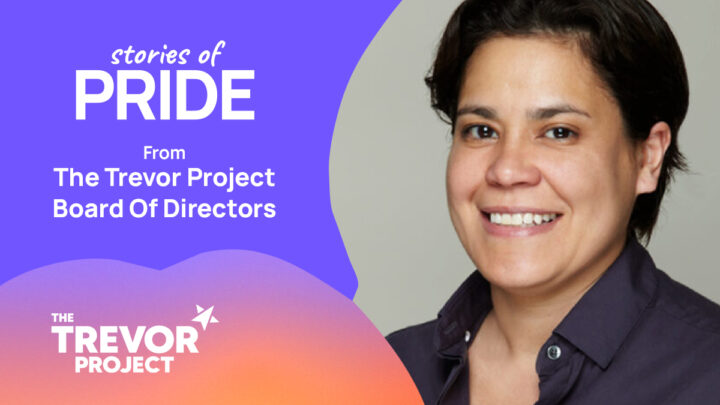Youth's Lives Every Day
As the majority of the state legislatures adjourn for the summer, we’re able to reflect on the recent legal changes that impact how LGBTQ+ young people navigate their schools, medical care, communities, and even their own identities. In addition to new state laws that will both support and hinder LGBTQ+ young people, the federal government has also advanced new regulations that will significantly shape the resources available to them.
On July 17th, the Administration eliminated the 988 Suicide & Crisis Lifeline’s LGBTQ+ Youth Specialized Services program, which has provided life-saving services to more than 1.5 million LGBTQ+ young people nationwide since its inception. In addition, the U.S. Supreme Court’s ruling in United States v. Skrmetti upheld a Tennessee law banning certain medicines for transgender youth and affirmed existing state-level bans on best practice medical care for transgender young people. This decision has made essential care even more difficult to access for transgender youth in states where it has been banned.
During the 2025 state legislative sessions, lawmakers across the country introduced more than 500 bills aimed at restricting the rights and safety of LGBTQ+ young people. Of those introduced, at least 78 were enacted into law. These new laws will limit access to medical care for transgender young people, impose discriminatory bans on restroom access and sports participation, enforce harmful school policies, and undermine protections for LGBTQ+ young people in foster care and adoption systems. LGBTQ+ young people deserve to be welcomed and supported by their communities and families, but these new statues will foster hostile and dangerous environments that will put their mental health and well-being at risk.
The lasting harm these laws will cause cannot be overstated. However, several significant bills and state administrative orders were enacted this year — offering LGBTQ+ young people a beacon of hope and assurance that there are countless allies in their corner advocating to make the world a better place for LGBTQ+ youth.
Access to Health Care
Several states passed key legislation this year to strengthen protections and improve access for transgender medical care. Colorado and Vermont enacted laws requiring coverage of gender-affirming medical care under health insurance plans. Additionally, Colorado, Connecticut, and Washington expanded financial support and protections to streamline access to essential medical care for those who need it. Building on these victories, Delaware Governor Meyer signed an Executive Order implementing protections for patients and providers of transgender medical care. According to The Trevor Project’s 2024 U.S. National Survey on the Mental Health of LGBTQ+ Young People, nearly half of transgender youth who wanted mental health care in the past were unable to access it. Laws like these help ensure that transgender young people can access care that both affirms their identity and prioritizes their safety and well-being.
Welcoming Schools
This year, Washington and Maryland enacted legislation to bolster protections for transgender students and strengthen local alignment with inclusive school curriculum requirements, respectively. Safe and welcoming school environments for LGBTQ+ young people play a critical role in supporting positive mental health outcomes.
Anti-Discrimination
Additional states enacted new statues to strengthen anti-discrimination protections for LGBTQ+ youth and adults. Colorado passed new legal safeguards for transgender residents, while Hawai’i will review their revised statues and make recommendations to incorporate gender-neutral language. Utah also passed legislation clarifying the definition of workplace sexual harassment to be more inclusive.
Looking Ahead
Despite efforts by certain state governments and federal agencies to create hostile environments for LGBTQ+ young people, LGBTQ+ advocates are determined to build a world where LGBTQ+ youth feel seen and supported for being exactly who they are. The Trevor Project is grateful that the State of California has stepped up to fill the gap in crisis care for California’s LGBTQ+ young people by announcing a new partnership that will enable Trevor to train all counselors in state-based crisis centers with critical LGBTQ+ competency training. This partnership highlights the need for personalized care for high-risk groups like LGBTQ+ young people and reinforces California leaders’ message: “We see and value the young LGBTQ+ residents living in our state, and we are taking action to support them, right now.” It sends a powerful signal to LGBTQ+ youth that they are valued and that they belong.
State advocates should be empowered to follow suit and support LGBTQ+ young people, even in the face of adverse federal actions. The Trevor Project encourages more states to follow California’s example and stands ready to partner with anyone, anywhere, to support the mental health of LGBTQ+ young people.
The Trevor Project has always been — and will continue to be — available around the clock, providing free, confidential crisis support to LGBTQ+ youth 24 hours a day, 7 days a week. However, federal funding through the 988 Suicide & Crisis Lifeline’s LGBTQ+ Youth Specialized Services program previously allowed Trevor to respond to half of the nearly 500,000 total contacts served last year. With current budget cuts, our capacity to support LGBTQ+ young people has been cut in half. Join our Emergency Lifeline Campaign today to help ensure that The Trevor Project can answer every call from an LGBTQ+ young person in crisis.
If you or someone you know needs help or support, The Trevor Project’s trained crisis counselors are available 24/7 at 1-866-488-7386, via chat at TheTrevorProject.org/Get-Help, or by texting START to 678678.


